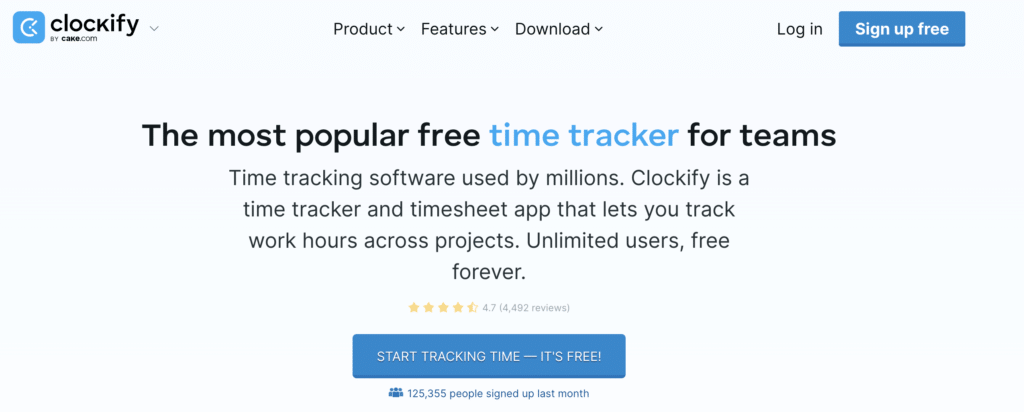Yes, many freelancers do work on weekends. According to my in-depth research & personal experience, it indicates that weekends, particularly Sundays, can be quite active in the world of freelance work. This is a time when freelance clients are responsive, leading to a higher Lead Reply Rate on platforms like Upwork.
To learn in detail about each point, follow the article below and discover insights into the freelance gig economy, from working weekends for extra cash to building a successful freelance business.
Key Takeaways
- Weekends are often prime time for freelancers to engage with clients and land new freelance jobs.
- Freelance writers and those in remote work see heightened activity over the weekend.
- Working weekends can help freelancers earn extra cash and drive a successful freelance career.
- Being available on weekends might give a freelancer a competitive edge in securing freelance writing jobs and other gigs.
- A well-managed freelance business can benefit from strategic planning around weekend availability.
- Understanding the freelance workweek helps in balancing freelance work with personal time.
Do Freelancers Work On Weekends
Yes! The idea of working on weekends can be utilized as a tool to attain a better work-life balance. Although some individuals believe that work and personal life should be kept separate, working a few hours on weekends can help to achieve a more balanced life during the week.
By dedicating some time on weekends to work, individuals may be able to leave work earlier on weekdays, especially for those with time constraints such as picking up children or catching a train. It is crucial not to overwork on weekends but instead to use the time for deeper thinking and focusing on tasks without distractions.
Saturday mornings can be used for deeper reflection and tackling tasks, while Sunday evenings can be used for planning and strategizing for the upcoming week. Working a bit on weekends can lead to a more productive and balanced work schedule overall.
GigRadar’s data further uncovers a layer not always visible to those outside the world of freelance writing jobs—the weekend is not just a pause in the hustle; it’s a full part of the cycle.
Weekend Work Patterns Among Freelancers
As an independent contractor, the freedom to tailor my working hours is invaluable. Yet, observing a trend on platforms such as Upwork, I notice an upswing of activity from potential clients over the weekend. Sundays, in particular, usher in a wave of freelance work opportunities. For many remote workers and freelancers like myself, this doesn’t just mean the possibility of an extra gig; it symbolizes a strategic time to connect with a freelance client—which often translates to leveraging those working weekends for substantial growth and project acquisition.
Juggling Multiple Clients and Deadlines Over the Weekend
As a freelance writer, it’s not uncommon to balance the needs of multiple clients. When it comes to working weekends, I find myself aligning with a wide array of client schedules. These are the critical moments when flexibility becomes my strongest asset. I’ve experienced first-hand how the weekend allows for intensive focus on projects nearing their deadlines, and how my identity as a freelancer means embracing the unpredictable ebb and flow of working hours.
Choosing to Work on Weekends for Extra Cash or Project Completion
The allure of extra money is undeniably potent for any freelancer, and the weekend presents a prime time to earn it. Whether it’s wrapping up a freelance gig or taking on additional projects, I’ve recognized that my willingness to work during what’s traditionally considered ‘downtime’ significantly enhances my potential for income. Moreover, the fulfillment of bringing a project to its conclusion over the weekend opens the upcoming week for fresh endeavors and new freelance clients.
Allison Tibaldi, a dedicated freelance travel writer, emphasizes the importance of maintaining a weekly list to stay organized and ensure no project is overlooked. By setting aside focused time during weekends, she effectively manages her writing tasks and maintains a clear overview of her ongoing projects.
Allison Tibaldi
In closing, whether it be remote work or local freelance writing jobs, weekends have emerged as a cornerstone for ambitious freelancers aiming to capitalize on every available working hour. This adaptability not only allows for a higher earning potential but serves as a testament to the evolving dynamics of the independent contractor’s role in today’s marketplace.
The Freelancer’s Dilemma: Balancing Work and Personal Time
As a freelancer, the blur between work hours and personal time intensifies with the allure of earning extra cash over weekends and bank holidays. Striking that delicate work-life balance is like an art, one that demands your proficiency in juggling both personal goals and professional commitments.
Personal Goals vs. Professional Commitments
It’s a familiar scene for freelancers: the weekend job beckons, offering a chance to make headway in your freelance business. In my experience, balancing my aspiration to become a successful freelancer with unwinding during personal time is an ongoing challenge. It’s about prioritizing and making tough decisions. As an independent contractor, I’ve learned that my skills must not only be sharp but also balanced against the need for rest and recreation.
The Impact of Other Responsibilities on Freelancers’ Schedules
Familial duties and perhaps a day job can significantly compress your available hours. I have navigated through this maze by recognising that every responsibility impacts my freelance work week. Sometimes, it’s about serving the customer service gods; other times, it’s about showing up for the family picnic. The dance between these worlds is intricate but not impossible to master.
Strategies for Finding the Right Balance
I take pride in my ability to save time, a skill that’s a non-negotiable in the freelancing sphere. The strategies I employ range from setting clear professional commitments to ensuring that, even as a relentless freelancer, I carve out time for myself. Here’s a table that encapsulates my strategy:
| Weekend Work | Bank Holidays | Personal Time |
| I allocate specific hours for projects that require undivided attention. | I discern between days for rest and those for work marathons. | Daily, non-negotiable slots are set aside for personal rejuvenation. |
| Urgent client work trumps less immediate tasks, which can wait for weekdays. | Plan ahead to prevent work overflow onto these days, when I typically unplug. | Embrace hobbies and social activities to maintain a sense of self beyond work. |
| Stay current on communication, but with set ‘offline’ periods to prevent burnout. | Use for strategic planning rather than execution, if I opt to work. | Regular check-ins with loved ones to ensure work hasn’t eclipsed family time. |
Ultimately, the essence of freelancing, at least for me, lies in the freedom and fluidity it offers. Reshaping the typical work week by being an independent contractor has allowed me to redefine what a traditional job means in today’s world, finding harmony between personal time and professional commitment.
Understanding the Freelance Workweek
My view of a typical workweek has changed as a freelance digital marketer. Clients from platforms like Upwork often prefer working on weekends, freeing me from the constraints of a traditional work week and holidays. The flexibility of freelance work allows me to work when clients are most active, even on Sundays.
Unlike a standard 9-to-5 job, my schedule as an independent contractor depends on clients. Unlike an employee with set hours, balancing multiple clients across different time zones leads to late nights or early mornings.
Adapting to this unconventional schedule does have its perks. It allows me to manage a diverse portfolio of projects, from freelance writing assignments to strategic consultancy roles, all on my terms.
Here’s a view of how my workweek as a freelancer compares to that of a traditional employee:
| Freelancer Schedule | Traditional Employee Schedule |
| Flexible workdays, potentially including weekends | Fixed workdays, typically Monday–Friday |
| Varied work hours based on project demand and client location | Standardized hours, often 8 hours/day |
| Holidays and weekends are considered optimal times for client engagement | Holidays and weekends are traditionally non-working days |
| Capability to serve multiple clients simultaneously | Limited to responsibilities of one full-time position |
| Earnings tied directly to projects and client demand | Consistent salary, possibly with overtime pay |
Working as a freelancer has reshaped my concept of a workweek, trading in the predictability of a nine-to-five role for a bespoke schedule that aligns with the dynamic flow of the freelance marketplace—where my open hours meet the peaks of client activity, even when that extends into the weekend.
The Flexibility of Freelance Work Hours: Myths and Realities
As I delve into the field of freelance work, the idea of having complete control over my schedule seemed too good to be true. I envisioned a life unbound by the nine-to-five constraints of a traditional job, but I quickly learned that the reality of a freelance career comes with its own unique set of challenges, especially when it comes to managing time.
Billable Hours vs. Total Work Hours
One of the first lessons I picked up as a freelance digital marketer & writer is the stark difference between billable hours and total work hours. Sure, my hourly rate as a full time freelancer is crucial as it dictates my earnings, but it doesn’t account for the hours I spend seeking out freelance jobs, communicating with clients, or handling administrative tasks. This extra work often infringes upon my weekends, blurring the lines of a conventional work week.
The Illusion of “More Free Time” in Freelancing
The concept of having more time is tantalizing and often associated with a freelance career; yet, it’s a myth that I, like many others, have seen debunked. The reality is that I am a freelance worker available round the clock, ready to cater to client expectations, whether that means revising content over a weekend or quickly adapting to the urgent demands of a freelance client who resides in a different time zone. This hard truth shatters any illusions of long, leisurely weekends one might have before embarking on their freelance journey.
Managing Client Expectations Around Availability
Repeat clients and steady freelance jobs are the lifeblood of my freelance career, but they come with an underlying need to manage expectations around my availability. It’s a delicate dance to ensure that I save time for myself while meeting the demands of my virtual assistant or writing tasks. Setting boundaries becomes as critical as creating compelling content because it dictates my ability to sustain this balancing act between being a freelancer and pursuing personal interests come the weekend.
Maximizing Productivity: How Freelancers Organize Their Workdays
Freelancers organize their workdays through a combination of time management strategies, tools, and routines. Here are some key insights:

- Time Tracking: Freelancers use tools like Clockify, Toggl, Asana, ClickUp, and Google Calendar to track their time and manage their workload effectively.
- Setting Working Hours: Establishing regular working hours helps freelancers maintain a routine and avoid overworking or neglecting self-care.
- Project Management Systems: Using project management tools like Asana and Google Calendar helps freelancers stay organized and meet deadlines.
- Prioritizing Tasks: Prioritizing tasks based on their importance and urgency ensures that freelancers focus on what matters most.
- Minimizing Distractions: Reducing distractions and interruptions allows freelancers to remain focused and productive.
- Taking Breaks: Taking regular breaks can help freelancers recharge and maintain their physical and mental well-being.
- Time-Blocking: Dividing the day into blocks of time for specific tasks can help freelancers stay focused and manage their time more effectively.
- Finding Your Most Productive Hours: Identifying your most productive hours and using them to your advantage can help freelancers maximize their productivity.
- Creating Templates for Client Communication: Having templates for common client communications can save time and ensure consistent communication.
- Scheduling an Admin Day: Setting aside a day for administrative tasks can help freelancers stay organized and manage their workload more effectively.
- Changing Where You Work: Changing locations can help freelancers stay focused and avoid distractions.
- Investing in Technology: Using technology like project management software, cloud-based file storage, and time-tracking tools can help freelancers work more efficiently and effectively.
- Networking and Collaborating: Building relationships with other freelancers can help freelancers learn from each other & stay informed about the latest industry developments.
By implementing these strategies and using the correct tools, freelancers can effectively manage their time, stay organized, and maximize their productivity.
Conclusion & The Future
As we wrap up this discussion, it’s evident that the field of freelance work presents both opportunities & challenges when it comes to working weekends. Embracing weekend jobs can lead to heightened client engagement and offer paths to earn extra cash—benefits I’ve personally observed.
However, as a freelancer, it’s crucial to take stock of the trade-offs, particularly when it comes to preserving a work-life balance and ensuring flexibility within my freelance career. Balancing the prospects of additional income against personal time can be akin to walking a tightrope.
Assessing the Pros and Cons of Weekend Work for Freelancers
Deeper scrutiny into the advantages and drawbacks of weekend labor for freelancers like myself exposes an intricate dynamic. On one hand, working weekends can mean thriving as a successful freelancer—seizing moments of increased availability from clients. On the flip side, there’s the potential cost to one’s personal freedom and the elusive state of balance between professional and private spheres. With the rise of platforms promoting remote work, such as Upwork, the traditional job structure fades, leaving an independent contractor to navigate these waters vigilantly.
Looking Ahead: The Future of Freelancing and Weekend Work
Looking ahead to the evolution of freelance business trends, it’s apparent that adaptability will be the name of the game. The consistency of weekend job offerings and client activity forecasts a setting wherein a full-time freelancer might find themselves regularly planning work weeks around client availability. The future of freelancing will likely demand a heightened level of flexibility in order to stay in alignment with client expectations and maintain a steady workflow.
Taking Charge of Your Freelance Career and Schedule
The key to adapting to these changes is to take control of my freelance career and manage my schedule effectively. This includes setting boundaries, communicating my availability, and turning down projects that could impact my desired lifestyle. It’s not easy, but essential to maintain the freedom that attracted me to freelancing. By staying committed to my goals and adjusting to the evolving work-life balance, I can succeed in this competitive environment.




